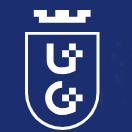Introduction
The University of Gdańsk is the largest institution of higher education in the Pomeranian region of northern Poland and one of the most modern academic centers in Poland. It offers nearly 74 research fields and 221 majors for students to choose from.
Overview
Number of students and faculty: The current number of students on campus has exceeded 35,000, and there are about 1,700 faculty and foreign language teacher trainers.
Major settings: The majors cover a wide range of fields, including advanced medical technology, aquaculture, bio-innovation and entrepreneurship, European business administration, finance and accounting.
History and establishment time
The University of Gdańsk was established on March 20, 1970. Its predecessor was the Sopot Maritime and Trade Higher School established in 1945. The school awarded its first degree in 1947. In 1970, the Sopot Higher School of Economics and the Gdansk Higher Teacher College and the later Higher Teacher School merged to form the current University of Gdańsk.
School strength
Faculty: It has 1,700 There are many teaching staff, including 282 professors, 171 associate professors, 640 senior lecturers, etc. Many teachers have profound academic attainments and rich teaching experience in their professional fields.
Research achievements: Scholars from the University of Gdansk have participated in 35 international research projects and 262 national research projects, and have won many Polish and international research funds and awards. For example, in 2008 and 2013, professors won the Polish Science Foundation Award for their research results in quantum physics. This award is known as the Nobel Prize in Poland.
International cooperation: The school has cooperated with more than 100 Many international schools and institutions have signed exchange and cooperation agreements and actively participated in international exchange and cooperation projects, such as participating in the creation of the European University Network and the establishment of the European Maritime University (SEA-EU) Alliance, providing students with opportunities to exchange and study at universities around the world.
Institutional Nature
Public research university.
Educational Philosophy
Combining respect for tradition with commitment to innovation, focusing on cultivating students' innovative and practical abilities, emphasizing interdisciplinary learning and research, and committed to providing students with a comprehensive education so that students can acquire in-depth knowledge and skills in different fields to meet the needs of social and economic development.
Key laboratories and disciplines
Key laboratories: The school has more than 70 modern scientific laboratories and high-tech equipment such as the Plant Nutrition Department, Biomolecular Analysis Laboratory, and Isotope Laboratory, providing good conditions for scientific research and teaching.
Key disciplines: Biology, biotechnology, chemistry, psychology, education, quantum physics, oceanography, law, economic science and other disciplines are at the top level in Poland.
Faculty
The school has 11 colleges, including the Faculty of Biology (Gdansk / Gdynia), Faculty of Chemistry (Gdansk), Faculty of Economics (Sopot), Faculty of Languages (Gdansk), Faculty of History (Gdansk), Faculty of Mathematics, Physics and Computer Science (Gdansk), Faculty of Social Sciences (Gdansk), Faculty of Oceanography and Geography (Gdynia/Gdansk), Faculty of Law and Administration (Gdansk/Koszalin), Faculty of Management (Sopot), Faculty of Medicine.
Ranking
2024 QS Global Ranking: 951-1000.
Ranking of European Universities (Eastern Europe): 30.
Ranking of European Universities: 344.
Fees
Tuition fees: From 1,000 euros per semester.
Accommodation fees: From 85 euros per month.
Campus
Location: Located in Gdansk, Poland, the city is an important port city and economic center in Poland, with rich historical and cultural heritage and beautiful coastal scenery.
Campus environment: The campus is fully equipped, including modern teaching buildings, laboratories, libraries, student dormitories, restaurants, etc. The school's library has 1.5 million physical books and more than 3 million electronic books, and also provides 109,370 scientific magazines are available for reference, providing students with good learning and living conditions.
Campus life: In addition to studying, students can choose from dozens of student interest clubs, as well as gyms and other sports facilities. There are also theaters, opera houses, symphony halls and several cinemas near the school to meet students' different interests and entertainment needs.
-
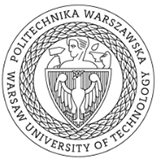
Warsaw University of Technology
-

Poznan University of Life Sciences
-
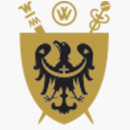
Wroclaw Medical University
-

Nicolaus Copernicus University
-
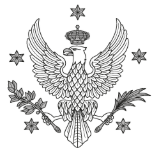
University of Warsaw
-
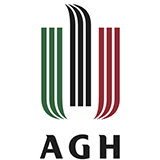
AGH University of Science and Technology
-

Silesian University of Technology
-
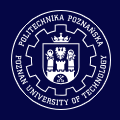
Poznan University of Technology
-

Jagiellonian University
-
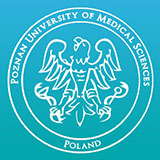
Poznan University of Medical Sciences
-

Mesoamerican University
-

Istmo University
-

Mariano Galvez University of Guatemala
-

Regional University of Guatemala
-

Galileo University
-

Francisco Marroquín University
-

Rafael Landívar University
-

University of the Valley of Guatemala
-

University of San Carlos of Guatemala
-

Technological Institute of Tlaxcala Plateau
-

Golfo University
-

Technological University of South Sonora
-

Technological University of Huejotzingo
-

Tizimín Institute of Technology
-

Chilpancingo Institute of Technology

